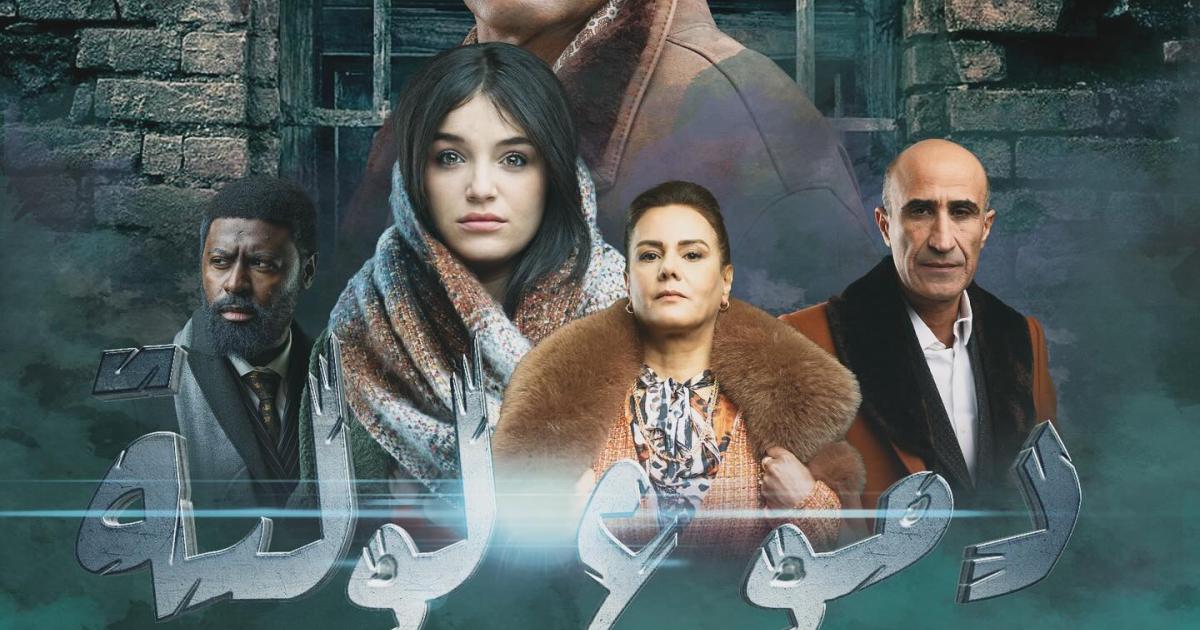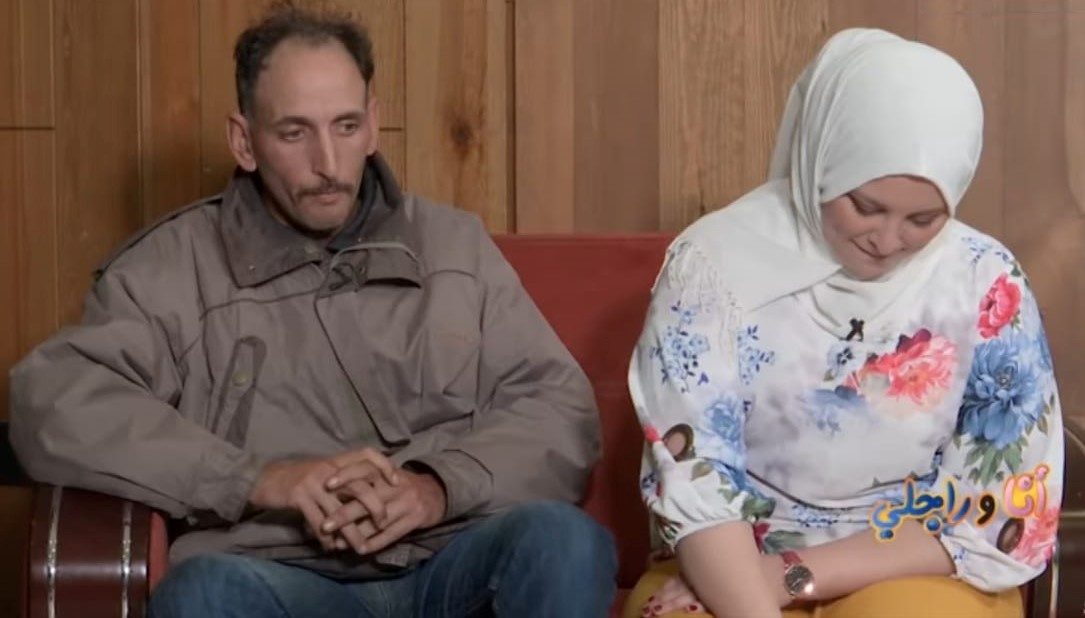This post is also available in: Français (French) العربية (Arabic)
During the month of Ramadan, I watch the programs airing on TV through a journalistic and feminist activist lens. Every show I watch unmistakably makes me feel increasingly angry and disappointed at the stereotypical image of women that continues to be reproduced, trivializing the violence perpetrated against them.
Scenes of violence against women and stereotypical representations of women have once again filled our screens, such as women being slapped and insulted, and this has pushed viewers to share these controversial clips on social media with the caption “The Legendary Slap,” as witnessed with the El-Barrani (The Outsider) series, written and directed by Yahia Mazahem.
Another Ramadan show this year is Domoua Loulia (Loulia’s Tears), which from its very title is already stereotypical. The term Loulia in Algerian dialect carries negative connotations, referring to a degraded, weak woman. On top of that, a hidden camera targeted women in public spaces with insulting behavior and gender-based discriminatory language: “Shut up, your place is in the kitchen,” “If you weren’t a woman, I would’ve hit you,” or even “You should be wearing the hijab.”

A focus on physical violence
In an interview with Medfeminiswiya, narrative filmmaker and feminist activist Ludmila Akkache points out the media’s role in reproducing tropes of violence against women, stressing that the media bears great responsibility for what the public consumes. She highlights the absence of ethics from soap operas when it comes to portraying women.
Akkache specifies, “The reproduction of violence against women in soap operas humiliates and violates women’s dignity, especially when accompanied by a total absence of gender equality. Women are consistently portrayed as victims of violence, humiliation, and degradation, while men repeatedly play dominant roles. Furthermore, and this is not to compare different forms of violence or declare one as more dangerous than another, I have noticed that directors always give more attention to physical violence against women in these kinds of shows and ignore the psychological and economic violence that is also practiced on a large scale. The focus on physical violence in soap operas does not only fail to raise awareness and condemnation, it is also a way to further insult women.”
In conclusion, Akkache stresses that blame should never be laid on the actresses. They cannot be made responsible for accepting these kinds of roles. “Change is not an individual process; it’s a collective effort, especially considering that the field of television production in Algeria is monopolized by men, and actresses often find themselves marginalized and isolated if they decide to resist.”
Why this stereotypical image of women?
Speaking to Medfeminiswiya, director and feminist activist Leïla Saadna says that the majority of Ramadan soap operas are broadcast on television channels with a conservative editorial line, alluding to the absence of channels offering progressive content in Algeria. She points out, “As long as these shows do not portray women as strong and capable of confronting violent situations, this suggests one of two things: either the director wants to establish violence against women as common and harmless, merely a social reality, or the director wants to perpetuate the trope of woman-as-victim. This is what is shown in media reports too: in these, men appear dominant, in the lead, while women are shown crying in the corner. A woman is never shown defending herself.”
Saadna also touches on funding as a reason for reproducing representations of violence against women. Even though there is a will to address topics considered socially taboo, the reality of things imposes a great deal of regulation. Saadna explains that even if directors were committed to a better representation of women without stereotypes, they wouldn't get the necessary funding.
She mentions another issue linked to the inequality in decision-making power between men and women: “These kinds of shows are often produced by men, who therefore hold most of the decision-making power. Women are mostly left to secondary positions such as makeup artist, set decorator, and maybe scriptwriting. They are not involved in any major roles like directing or any position that would enable them to add a feminist perspective.”
Refusing to play in violent scenes

On the other hand, the group Féminicides Algérie has strongly condemned the content of these Ramadan soap operas, considering such scenes to undermine the seriousness of this kind of violence and reinforce false stereotypes about women’s role in society.
The group posted a video showing some of these clips, noting that these kinds of portrayals promote the idea that women are weak, vulnerable, and deserving of violence, which in turn contributes to encouraging violence against women in real life, especially among children and minors.
Despite the harmful content that some Ramadan series are broadcasting, we are witnessing some manifestations of increased awareness. For example, actress Feryel Nesrine Bourezeg has expressed her refusal to be part of a scene in which she would be slapped, stressing that this scene has no dramatic justification.
On the other hand, content creator and actress Mounia Benfeghoul has launched a Ramadan program on El-Hayat channel, where she speaks out about combating stereotypes affecting women.
I also remember well when journalist and director Reda Manasel reached out to a number of feminist activists during the month of Ramadan last year and asked us about our feminist analysis of his film DZ AILS before showing it to the public. This hints at the growing impact of feminist voices. The only option is to continue the struggle, continue to be vigilant and protest to expand our circle of influence.
And yet, the question remains: when will these directors realize that scenes with women crying in a corner, in pain, after being beaten and threatened with death by their husbands or fathers or brothers or ex-husbands or boyfriends, are blatant attacks on women’s rights?

























